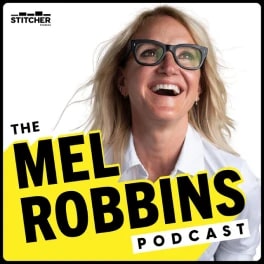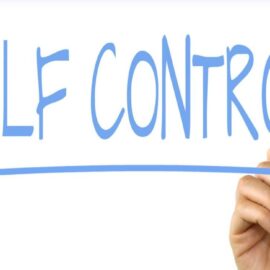

This article is an excerpt from the Shortform guide to "The Mel Robbins Podcast". Shortform has the world's best summaries and analyses of books, podcasts, and more.
Like this article? Sign up for a free trial here.
What are the rules for safe fasting? How do you get started with fasting?
While many diets focus on what you eat, intermittent fasting focuses more on when you eat. When you fast, you stop eating for a period of time and then go back to your regular eating schedule. If this isn’t done properly, it can be dangerous.
Here’s what to know so you can fast safely, according to The Mel Robbins Podcast.
How to Get Started With Fasting
On The Mel Robbins Podcast, Robbins explains that intermittent fasting is a dietary approach that involves alternating periods of fasting and eating. It’s an ancient tradition that has been practiced by various cultures and religions for centuries, with therapeutic intermittent fasts being investigated since the early 20th century.
The concept of intermittent fasting revolves around voluntarily reducing calorie intake or abstaining from food for specific periods. Different methods include alternate-day fasting, periodic fasting like the 5:2 diet, and daily time-restricted eating.
For those seeking to implement safe fasting in their lifestyle, it begins with the last calorie intake and includes sleep hours. Thus, it can span from dinner to breakfast the next day, keeping sleep hours into account.
Real-life Successful Experiences With Intermittent Fasting
There’s plenty of evidence that intermittent fasting is efficient. An inspiring example is the story of Todd, a food addict, who lost 30 pounds in his first month. This was all thanks to implementing a 12-hour eating window.
His story showcases how intermittent fasting can dramatically influence weight loss. Interestingly, these changes can occur without necessarily modifying the diet.
Precautions for Different Demographics
While potent, fasting must be approached cautiously by certain demographics such as pregnant women, nursing mothers, and individuals with eating disorders.
Holistic health expert, Dr. Mindy Pelz, emphasizes the remarkable benefits for those with pre-diabetes, diabetes, or cardiovascular conditions. However, she insists on taking necessary precautions when fasting. Because everybody is different, it’s important that you conduct extensive research and consult a medical professional before starting the diet.
Hormonal Cycles’s Role in Fasting
It’s important to consider gender when determining fasting protocols due to the variance in hormonal cycles. There are many discussions surrounding fasting protocols tailored for women, uniquely catered to their hormone cycles.
When you integrate your hormonal cycle into fasting schedules, you’ll have a higher chance of reaping the benefits, such as weight loss, improved gut, and curbed food cravings.
The Scientific Conversation Around Fasting
Mel Robbins’s main concerns when it comes to intermittent fasting are health and wellness, weight loss, dietary strategies, and hormonal cycles’ impact on fasting. Proponents argue that intermittent fasting may help with obesity, insulin resistance, dyslipidemia (abnormal lipid levels), hypertension (high blood pressure), inflammation, and metabolic syndrome. It is important to note that while some studies support these claims, others caution against adopting this approach without medical supervision due to limited comprehensive research on potential adverse effects.
In the context of historical practices and recent events in health trends, intermittent fasting has gained popularity alongside increased interest in overall well-being. Ongoing research continues to explore its effects on various health conditions while considering other dietary approaches such as ketogenic diets or paleo diets. Additionally, understanding the relationship between hormones and metabolism is crucial when examining how different hormonal cycles may impact the effectiveness of intermittent fasting.
Looking ahead to future developments in this field includes further research into its effects on health markers like cardiovascular conditions or pre-diabetes. Personalized protocols based on individual needs may be developed to optimize outcomes while ensuring long-term sustainability and minimizing potential risks associated with this dietary strategy.

———End of Preview———
Like what you just read? Read the rest of the world's best guides to The Mel Robbins Podcast" at Shortform.
Here's what you'll find in our full The Mel Robbins Podcast episode summaries:
- Advice to make your life and your personal relationships better
- How to boost your confidence with techniques recommended by experts
- Research-based lessons combined with personal stories






